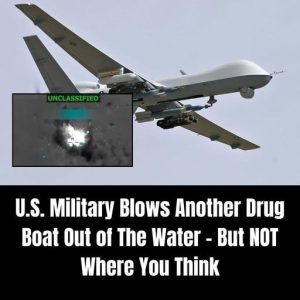President Trump confirmed that on Thursday the U.S. military destroyed a vessel described as a “drug-carrying submarine” in international waters near Venezuela, targeting what the administration called “narcoterrorists”. He stated the vessel was loaded “mostly with fentanyl and other illegal narcotics” bound for the United States. Two suspected traffickers died in the strike and two others were captured alive, recovered by U.S. Navy and Coast Guard helicopters and given medical care aboard a ship.
Under Trump’s direction, the two survivors are to be repatriated to Ecuador and Colombia for detention and prosecution—marking a departure from prior U.S. practice of bringing such suspects into the U.S. federal justice system. The strike is part of what the administration views as a broader campaign to target drug cartels and “narcoterrorists” at their source. Trump described the operation as using “every tool available to dismantle these operations where they begin – not where they end.”
However, the operation has sparked significant legal and diplomatic controversy. Critics argue that the use of lethal military force against suspected drug traffickers—outside the context of a formally declared war—raises questions under international law. The lack of publicly released evidence tying the vessel to drug trafficking or to designated terrorist organizations has further intensified scrutiny.
Finally, the strike must be viewed within a wider escalation of U.S. military activity in the southern Caribbean and off the coast of Venezuela. Multiple vessels and aircraft have been deployed in recent months, and the Trump administration has designated certain Latin American drug-trafficking groups as foreign terrorist organizations. While the government presents this as a necessary defense of national interest, opponents warn of unintended geopolitical consequences and a slippery slope in shifting from law enforcement to combat operations.




